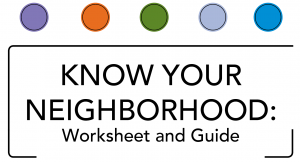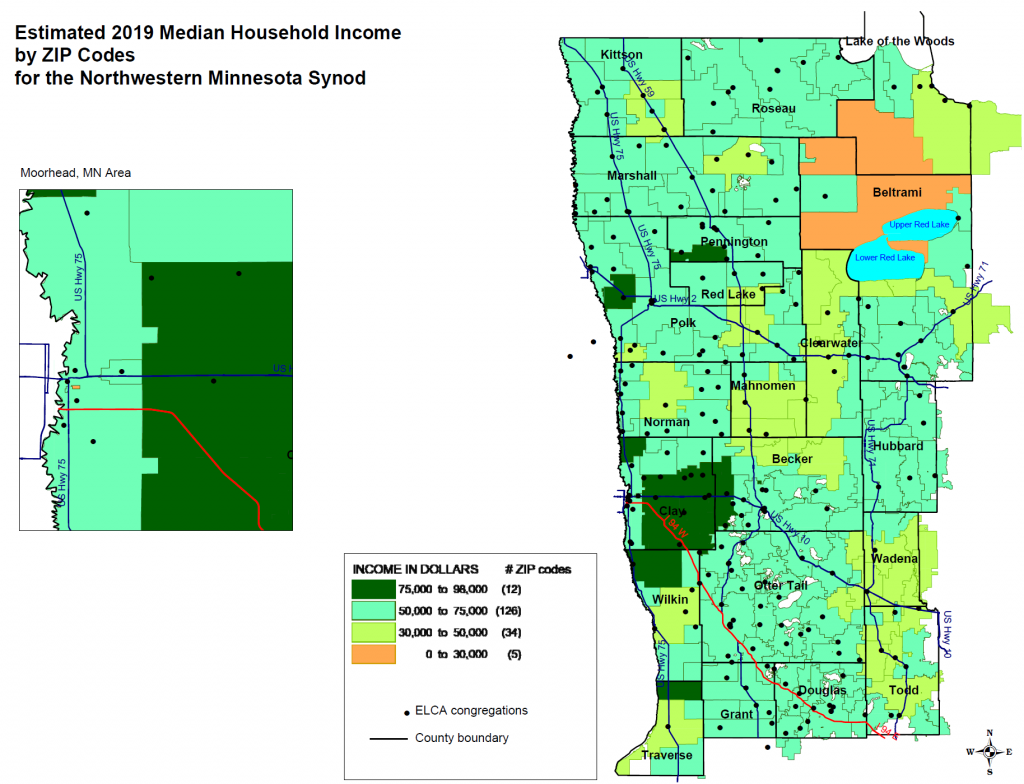A New Resource for Learning, Sharing and Leading
Good information is the backbone of effective responses to hunger and poverty. But where do we get the information we need? And where can we get reliable information about our local communities? ELCA World Hunger’s new “Know Your Neighborhood Worksheet and Guide” is here to help!
This fillable worksheet gives step-by-step instructions for finding the most up-to-date, reliable data on counties within the United States. Each section offers clear instructions for finding data from sources such as the United States Census Bureau, the U.S. Department of Housing and Urban Development and the U.S. Department of Agriculture. There are also tips to help you dig even deeper into the numbers and to share the information with others.
What Information Can I Find?
“Know Your Neighborhood” is divided into five sections:
- Housing
- Employment and Poverty
- Food Security
- Food Access
- Community Asset Mapping
Each section provides a brief introduction to the issues, a summary of what information to look for and a list of the sources used for the data (click to enlarge):
Some of the questions that you will be able to answer with the help of “Know Your Neighborhood”:
-
How many people are homeless in my state? How many homeless people in my state are currently sheltered?
-
What is the median household income in my county?
-
How many people are living in poverty in my county?
-
What is the median household income in my synod?
-
What is the unemployment rate in my county?
-
How many people are food insecure in my county?
-
How many people in my county live in a food desert?
Another New Resource: Synod Maps
In addition to the worksheet in “Know Your Neighborhood,” ELCA World Hunger is happy to provide synod maps here. These maps are color-coded and show the median household income by zip code for synods. (The Slovak Zion Synod and the Caribbean Synod are not available.) In addition, each map shows the locations of ELCA congregations throughout the synod.
As you can see in this example map of the Northwestern Minnesota Synod, the color-coded areas represent median household income brackets (click to enlarge):
How Can You Use This Data?
The worksheet and maps for “Know Your Neighborhood” give leaders a quick way to collect and share information with others in the community. These will be helpful for
-
Presentations
-
Temple talks
-
Newsletters
-
Considering new ministry plans
-
Sharing the story of a current ministry
-
Advocacy
-
And much more!
Download “Know Your Neighborhood” from ELCA.org/hunger/resources#HungerEd. The synod maps can be found at ELCA.org/hunger/resources#Maps. And check out other resources from ELCA World Hunger on the same page!
Connect
If you use “Know Your Neighborhood” or have questions about how to use the maps or the guide, get in touch with us at Hunger@ELCA.org.




